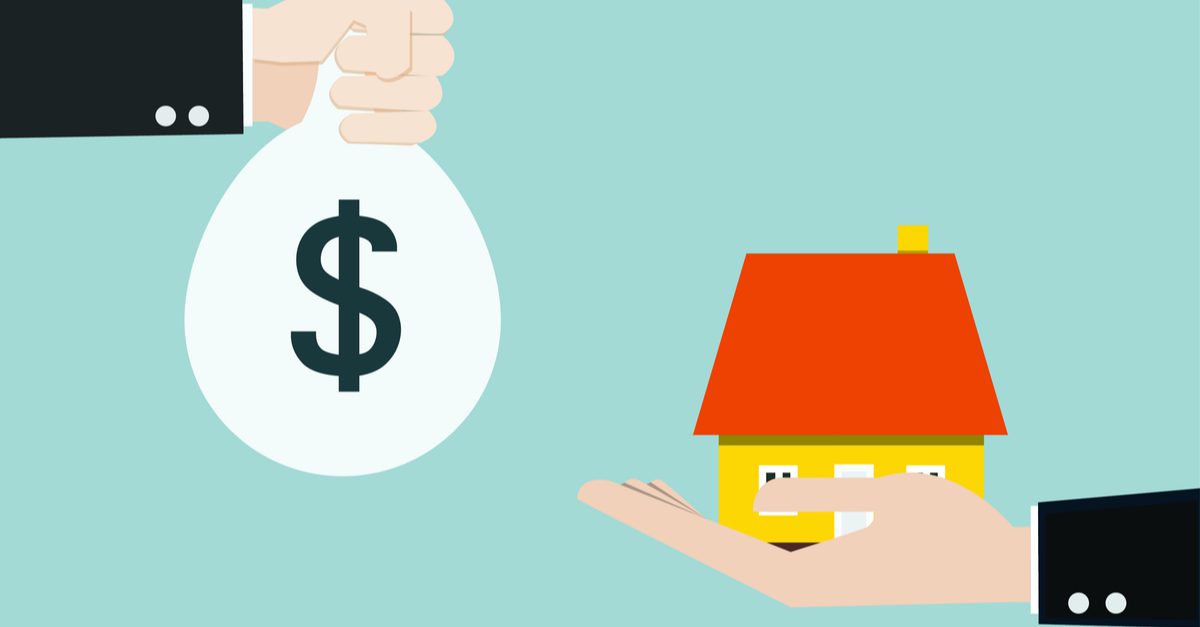Jump to:
Difference between deposit vs downpayment
What is a deposit in real estate
Difference between deposit vs downpayment
The difference between a deposit vs downpayment is a question we get a lot, so we thought it was worth a blog post!
If you’re buying a house, you’ve likely had to pay both a deposit and a downpayment. But, they are very different payments for very different reasons.
What is a deposit in real estate:
Let’s say you’re putting an offer in on a house to buy. The seller and/ or their Guelph realtors will identify a minimum deposit amount. This amount is usually due within 24hrs of an accepted offer. Note: many people think it’s one business day, but the Ontario Purchase and Sale Agreement clearly says 24hrs.
This deposit is an amount paid so that seller has some security that the buyer will follow through with their obligations and close on the sale. Obviously the larger the deposit paid by the buyer, the more likely they will close.
How much is a deposit ?
There is no set rule in Ontario for how much a deposit should be. Years ago, before housing prices really took off it was common to have the deposit at 5% of the purchase price.
There is a fine balance when setting a deposit amount. As a seller, you want it to be very high. The higher it is, the more “skin in the game” the buyer has. But the seller has to be careful: if you set the deposit too high, you risk turning off or losing qualified buyers.
In Guelph, it’s typical to see a deposit anywhere between $20,000- $50,000. And in some rare cases, it may be higher or lower than these amounts. When comparing a deposit vs downpayment, the deposit is likely the lesser amount.
Where does the deposit go?
The deposit typically is made out to the listing agents brokerage. In cases where the seller is using a discount service, like Fairsquare, the deposit is made out to the sellers lawyer.
The Listing brokerage holds onto the deposit in trust. Sometimes it is in an interest bearing bank account. However, it’s highly unlikely it’s going to earn any interest based on the clauses in a Purchase and Sale Agreement.
At closing, the deposit is credited to the Buyer’s closing and forms part of the purchase price (subject to your lawyers Statement of Adjustments). It does not cover anything else such as condo fees or property tax
If I change my mind, could I just not submit a deposit and get out of the purchase?
Absolutely not. This is a myth. Some buyers believe that not submitting a deposit means they can get out of a deal. This is likely because buyers believe that as long as they still have the deposit funds in their hands, they’re safe.
However, the commitment to buy a house is done when you sign the offer, not drop off the deposit. Dropping off a deposit is an obligation of signing the offer which is firm and binding.
Buyers who choose to try and get out of purchase after signing a firm and binding offer risk not only losing their deposit, but damages, legal fees and much more. This is why it’s so important to be aware of the agreement you’re entering in to. Especially in a sellers market where there are few conditions.
Do I have to submit a deposit if my offer is conditional on financing or inspection?
If you buy a home that is conditional on financing or home inspection (or any other condition), it’s considered an accepted conditional offer. Therefore, you still need to submit a deposit within 24 hours of the offer being accepted.
That being said, our team uses verbiage in a conditional offer that protects our buyers. This verbiage reads that if the buyer does not proceed with a deal, the buyer receives the deposit back in full, without penalty.
As an example, say you purchase a home that is conditional on a home inspection. If you don’t like the results of the home inspection and want to walk away from the deal, you are NOT penalized in any way. Each real estate transaction is different, so please read the verbiage in depth.
The same is true with a financing condition. If a seller accepts your offer conditional on financing, you have to act in good faith. For the buyer, a financing condition is more about obtaining a mortgage, not the specific rate.
Have other deposit questions? Contact someone on Beth and Ryan’s team!
What is a down payment?
The difference between a deposit vs downpayment, is that the downpayment is the total amount of funds that the buyer puts forward. themselves to go towards purchasing a property. This is determined directly with your mortgage broker or bank, not your Realtor. It’s typically provided as part of your closing costs to your lawyer.
The size of the downpayment will depending on the house you buy. Buying a detached house at a higher pricepoint is likely going to be a greater downpayment than if you buy a duplex.
This deposit can be made up of cash savings, or other savings like funds held in a Registered Retirement Saving’s Plan (RRSP) and taken out as part of the Home Buyer’s Plan.
If you’re a first time buyer that is buying a house, you can withdraw your RRSP funds to use as a downpayment. Note that they need to be in the account for 90 days and you will have to repay them back annually. However, there is no incremental tax to pay by doing it this way.
It’s important that you have the discussion about downpayments and mortgage pre-approvals before you begin shopping. There are two main reasons for this. The first is that you don’t want to overextend your finances. Knowing how much you have an approval for gives peace of mind. Second, in a competitive market you are more likely to have a competitive offer if you don’t require a financing condition.
Related: What is a bank appraisal
Trends in the market regarding deposits vs downpayments
We’re also starting to see other trends in the market regarding down payments. More and more first time buyers and millennials are getting help from family members. This could be in the form of early inheritance, a loan or even a gift. If it’s a gift, there are other financial requirements that your lender may require.
The other trend we’re noticing are groups of people coming together and pooling their downpayment. Collectively, they can pool a larger downpayment and buy a more expensive house. Or, have a larger downpayment and lesser mortgage.
How much of a downpayment is do I require?
This is no maximum to what your downpayment is. However, there are minimums as found on the Government of Canada’s Financial Consumer Agency page:
If the purchase price is:
$500,000 or less: requires 5% minimum downpayment
$500,000 to $999,999: 5% of the first $500,000 of the purchase price and 10% for the portion of the purchase price above $500,000
$1 million +: requires minimum 20% downpayment
Note that if you are buying an investment property to rent out, you will be require 20% down. This is also true of some recreational properties such as cottages.
The down payment will make up the difference between what the purchase price is and the mortgage loan amount. Also factored in is the deposit as described above.
It is essentially what that the buyer pays towards a home (not factoring in closing costs) to complete on a property purchase.
Because the down payment is the amount the buyer pays up to the value of the mortgage, you can calculate it as:
:Purchase Price – Value of Mortgage = Total Down Payment
When the real estate purchases completes, the bank applies the deposit towards the purchase price and forms a part of the down payment. Therefore, it is a part of the down payment, but they are not the same thing.
Purchase Price – Mortgage – Deposit = Remaining Down Payment Funds Due at Completion
When do I need you have the funds for the downpayment?
The remaining down payment is not due until the agreed upon completion date. However, your bank will likely ask you early in the process where you are getting the funds for the downpayment.
The remaining funds for the down payment go directly to the buyer’s notary/lawyer. Then they are typically sent to the lawyer by form of bank draft.
It is important to check with your legal professional in advance. Then you will know how much money you’ll require to close (down payment & closing costs together). You’ll also know how they would like you to pay that amount.
Buying a home, especially in the current extreme sellers market can be a frustrating experience. Your Realtor should be able to guide you through the process.
Have questions?
Have any questions on the process? Please contact Beth and Ryan Waller, Guelph Real estate agents! We’re happy to help!
This blog is part of a series on 23 Most Common Real Estate Terms (2024)



